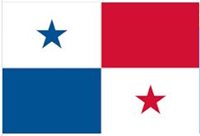Catherine Castro
 Originally from Yonkers, NY, Catherine graduated from the University of Chicago with a B.A. in Biological Sciences. As a first-generation American with heritage from the Dominican Republic, she has always had strong ties to underserved, Latino and immigrant communities. During her undergraduate studies, she worked in a molecular parasitology lab, researched breast cancer healthcare disparities among Latina women and was awarded a UCIHP Fellowship in Community and Social Medicine, which allowed her to research cultural competency training programs. After graduation, Catherine’s interest in community health motivated her to work as a Research Coordinator for UChicago’s Comprehensive Care Program, a study that integrated hospital medicine and primary care to improve coordination of care, the doctor-patient relationship and healthcare outcomes for Medicare patients at increased risk of hospitalization. During this time, she also volunteered as a Spanish interpreter at Community Health Clinic (CHC), a free health clinic on Chicago’s West Side for uninsured and low-income individuals.
Originally from Yonkers, NY, Catherine graduated from the University of Chicago with a B.A. in Biological Sciences. As a first-generation American with heritage from the Dominican Republic, she has always had strong ties to underserved, Latino and immigrant communities. During her undergraduate studies, she worked in a molecular parasitology lab, researched breast cancer healthcare disparities among Latina women and was awarded a UCIHP Fellowship in Community and Social Medicine, which allowed her to research cultural competency training programs. After graduation, Catherine’s interest in community health motivated her to work as a Research Coordinator for UChicago’s Comprehensive Care Program, a study that integrated hospital medicine and primary care to improve coordination of care, the doctor-patient relationship and healthcare outcomes for Medicare patients at increased risk of hospitalization. During this time, she also volunteered as a Spanish interpreter at Community Health Clinic (CHC), a free health clinic on Chicago’s West Side for uninsured and low-income individuals.
Catherine is currently a first-year student at University of Chicago Pritzker School of Medicine, the Co-President of the Latino Medical Student Association and works as a clinic volunteer and Education Coordinator at CHC. She is pursuing a scholarly concentration in global health and will travel to Panama this summer to carry out medical education research on Toxoplasmosis and point-of-care testing for pregnant women. Her future aspirations are to care for the underserved and continually advocate for and empower patients, domestically and abroad.
 Project: "Gestational Toxoplasmosis Infection and Screening in Panama Medical Education Project"
Project: "Gestational Toxoplasmosis Infection and Screening in Panama Medical Education Project"
June 11, 2017 - August 20, 2017
Panama
What does the Kean Fellowship mean to you?
I feel tremendously honored and grateful to have been selected for the Kean Fellowship. The support being provided by the fellowship is helping me gain exposure in tropical medicine early on in my training and facilitating my first global health research experience. My summer research in Panama will be invaluable to my growth as a future physician and leader in global health. Most importantly, being a Kean Fellow means I can gain knowledge and skills that will allow me to contribute to research that aims to reduce disease burden and to make a positive impact in the lives of individuals afflicted by preventable suffering.
What do you anticipate learning?
I anticipate learning more about the Toxoplasmosis disease process and its impact on pregnant women and their children in Panama. Throughout the summer, I also hope to gain a better understanding of the knowledge Panamanian medical students and healthcare providers have on Toxoplasmosis and their screening practices. I hope to learn much from the patient population, clinicians, research colleagues and medical students alike. I am eager to gain their perspective on the healthcare challenges Panama faces and potential solutions. Finally, Panama has a rich indigenous population, and I look forward to discovering more about their healthcare and the unique aspects caring for them may present.
What interests you about tropical medicine and what problems are you interested in solving?
The burden of disease and challenge addressing it, unfortunately, is often greatest in tropical regions. My interest in tropical medicine ultimately stems from my desire to reduce healthcare disparities in under-resourced and underserved patient populations. Furthermore, tropical medicine is unique in that it often tackles issues that have been eradicated in modern and developed countries. From a human rights and social justice perspective, I feel particularly drawn to the field of tropical medicine because it is in a position to contribute to work that strives to achieve health equity and eliminate preventable suffering in the world.
I am interested in solving problems related to identifying and eliminating healthcare barriers, successful implementation of educational and clinical interventions, and finding cost-effective ways to improve health outcomes in low-income and underserved communities. Specifically, this summer, I hope to assess if an educational intervention will improve attitudes towards Toxoplasmosis and intent-to-screen among Panamanian medical students and healthcare providers, and determine if they believe it is feasible to implement universal and affordable Toxoplasmosis point-of-care testing for pregnant women across Panama.